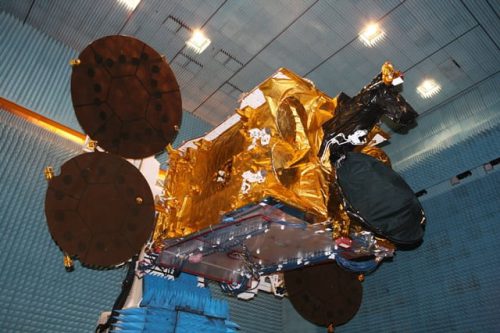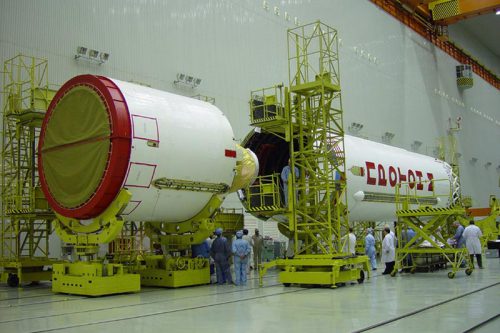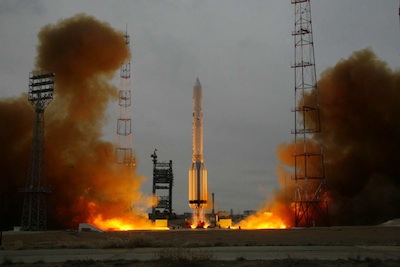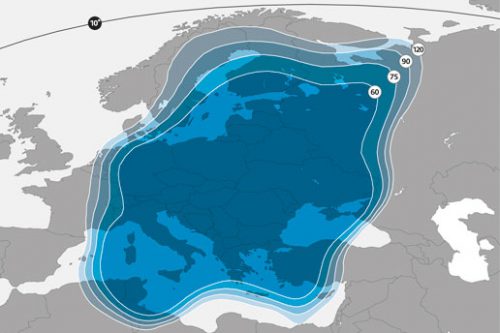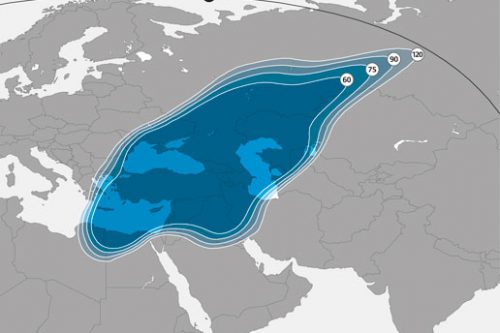
Back to selection
GEO Satellite
Astra 1G GEO
succesfull
Launch date
2 December 1997
Country

Purpose
Broadcasting
Position
63° East
Manufacturer
Operator
Launch operator
Launch vehicle
Proton K
Expected lifetime
15 Years
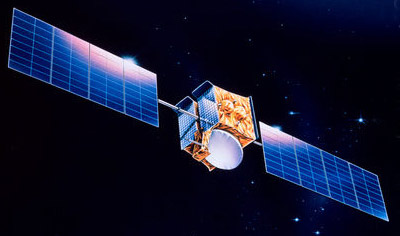
Regions
Europe Region
Middle East Region
Russia & CIS Region
SES ordered its Hughes 601 (Boeing) satellites, in 1994 for Astra 1G; in 1995 for Astra 1H; and in 1996 for Astra 2A. In August 1999, SES ordered Astra 2C, another Hughes 601HP.
The Hughes’ 601 satellite was designed for the higher-power missions of the 1990’s. The model was introduced in 1987 to meet anticipated requirements for high-power, multiple-payload satellites for such uses as direct television broadcasting to small antennas, mobile communications, and private business networks.
All the satellites operate in Ku-band and use Traveling Wave Tube Amplifiers (TWTA’s) for power. The TWTA’s provide 100W on Astra 1G and 1H, and 98.5W on Astra 2A. Astra 1G, 1H, and 2A will have a minimum of 28 active transponders with 32 being available for the first five years.
The satellites enable SES to provide analog and digital television programs together. Most operate at 19.2 degrees East longitude. On Astra 1C, the 18 transmission frequencies can be selected on-orbit from 34 possibilities. On 1G, 1H, and 2A 56 possibilities are available, most in the BSS band. Because each spacecraft will provide an effective isotropic radiated power (EIRP) typically 51dBW, these satellites deliver video and audio signals strong enough to be received by existing 60-cm dishes.
Astra 1G is the first in the series with the HS 601HP (for high power) configuration. Astra 2A is identical, but is located at SES’ second orbital position of 28.2 degrees East. Enhancements over the basic HS 601 design include the use of gallium arsenide solar cells, instead of silicon, to generate 6 kilowatts of payload power for the Astra spacecraft. Another new feature is an advanced antenna design, using two large lightweight Gregorian reflector systems featuring Hughes’ contoured-surface technology.
Astra 1G and 1H also have four solar panels per wing, with the high-efficiency gallium arsenide solar cells. Astra 1G and 1H use a more powerful battery with 24 large nickel-hydrogen cells.
Astra 1G was launched on December 2nd, 1997, on a Proton K rocket operated by launch operator ILS from the Baikonour Cosmodrome launch site in Kazachstan.
GEO Satellite
Astra 1G
succesfull
GEO Satellite
Astra 1G
succesfull
